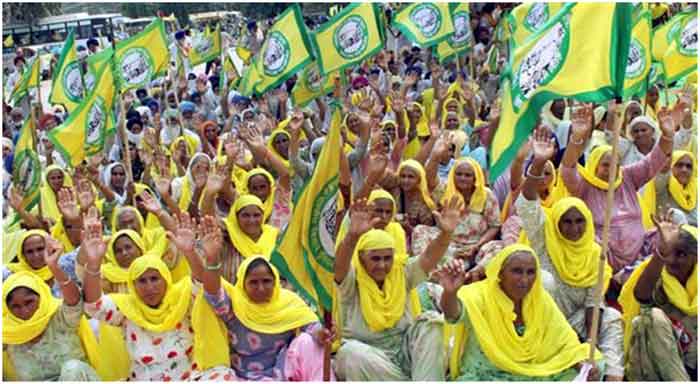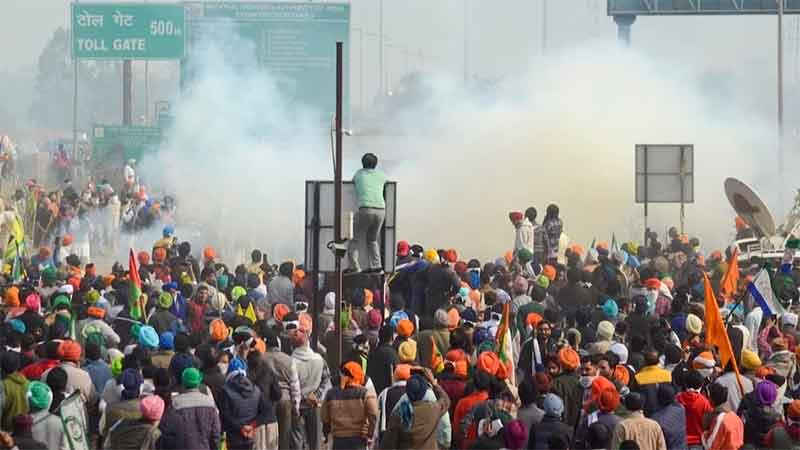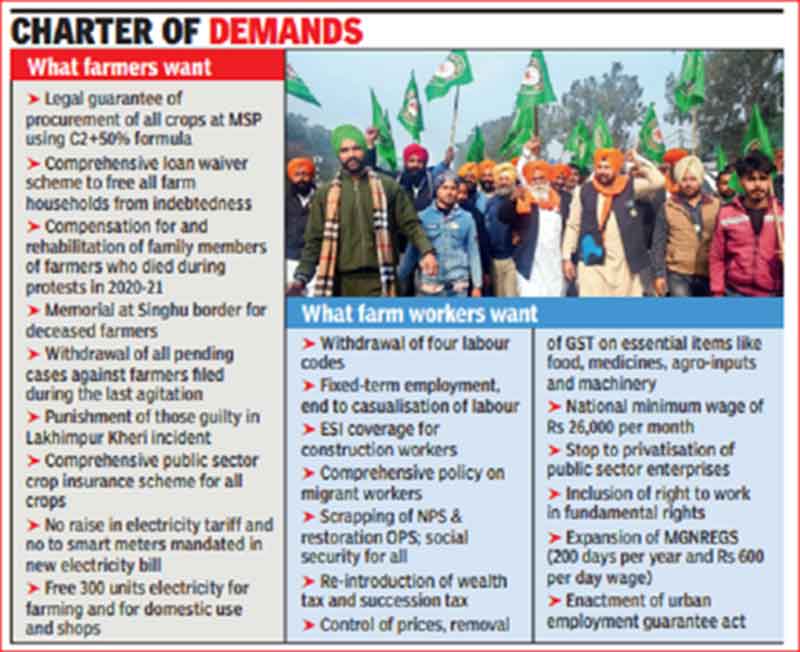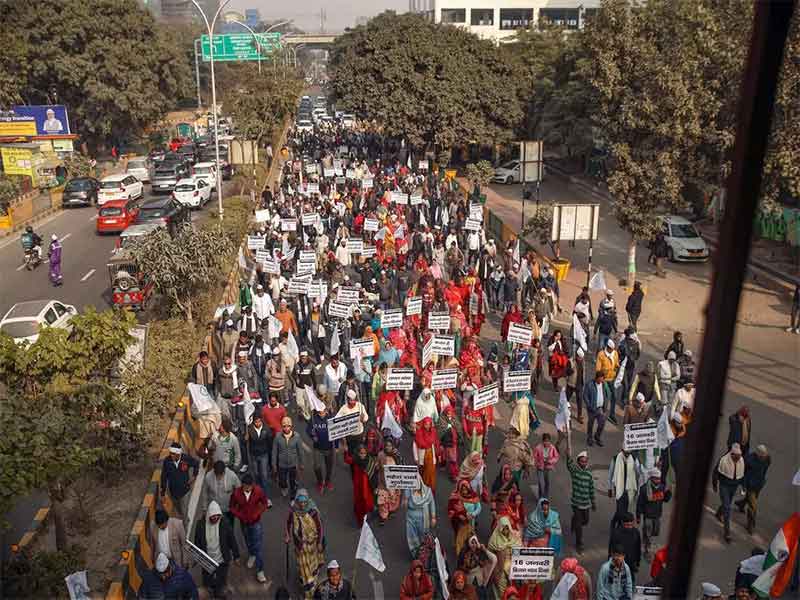
Delhi right now is witnessing an unprecedented outburst of long suppressed agony and muffled voice of the Indian farmers. The protest that started in August 2020 against the three Agricultural Laws bring forth by the NDA government is projecting a shift in its vigor and valor since this November 25th, when the farmers from Punjab and Haryana have decided to occupy the capital city under the slogan “Dilli Chalo”. What makes this movement unique is not just the presence of whopping 2-3 lakh farmers spending their day and nights in the spine chilling Delhi winter, but a multitude of differences it has bridged across generations, religion, occupation, caste and gender.
This protest too, like many of its ilk, began with the male farmers at the forefront confronting attempts to corporatize their land and produce. However, as weeks and months passed by, the women back home have realized that the time has come to extend their solidarity to the movement by making themselves visible in thousands at the protest sites. This very presence is remarkable for a number of reasons. One, it shatters the mainstream myth that Indian rural women are not capable of asserting their agency, and that their existence is inextricably linked to the diktats of the men surrounding them. Many women, who have reached the Singhu and Tikri borders of Delhi either as individual farmers or as a part of a particular Farmers Union, swear by their female collectives and socio political consciousness. They are sure that a single phone call is all it’ll take for their sisters back home to join them with enough food and clothes.
Second, it debunks the preconceived notion that women, be it farmers or homemakers, aren’t aware of the intricacies or impacts of these newly brought “reforms”; for they could be illiterates or ignorant of the well put intentions of the government. A meaningful interaction with the ladies at the protests site easily reveals that they know what and why they are fighting for. Like Aruna who is a student from Haryana’s Sonipat, or Harmeet Kaur, a housewife from Punjab, are clearly aware of the impact of the new Essential commodities Act, or the move to remove MSP to the farmers or the provisions leading to contract farming. They know these laws are capable of grabbing their farm lands forever, depriving their future generations of their rights and put them at the mercy of the corporate like Adani and Ambani.
The third reason for the uniqueness of this female presence is that it breaks the glass ceilings of gender norms and patriarchy which often dictates their life. The conventional idea that their assigned place is within the four walls of the household and assigned job is doing chula-chowka, is broken, when these women holding the protest flags in their hands march forward with slogans and singing songs of unity and endurance. They find their inspiration from the brave women of Shaheen Bagh, who have revolted against the Indian government’s Citizenship Amendment Act the National Register for Citizens (CAA-NRC), during the last Delhi winter. While it was the 82 year old Bilkis dadi who became the face of the CAA-NRC protest, here it’s the octogenarian grannies like Mohinder Kaur and Jangir Kaur who are setting the fresh narratives of feminism.
Finally, what these women along with their male compatriots are doing is the enrichment of democracy and dialogue. Glorifying their struggles could be a disservice done to the cause they stand for, yet one cannot ignore the whiff of fresh air these women have brought forth in India’s shrinking and dead beaten political space. In their resistance, they’re embracing the much needed empathy, humanity and faith. When the fierce grandmas tell you with a sparkle in their eyes that they’ll either emerge victorious by forcing the government to withdraw these bills or they’ll fight till the last breath, you know these women are capable enough to debunk any malicious propaganda and assert themselves as political actors in spearheading and sustaining the movement.
Lekshmi Sujatha is an independent writer.
SIGN UP FOR COUNTERCURRENTS DAILY NEWSLETTER














































